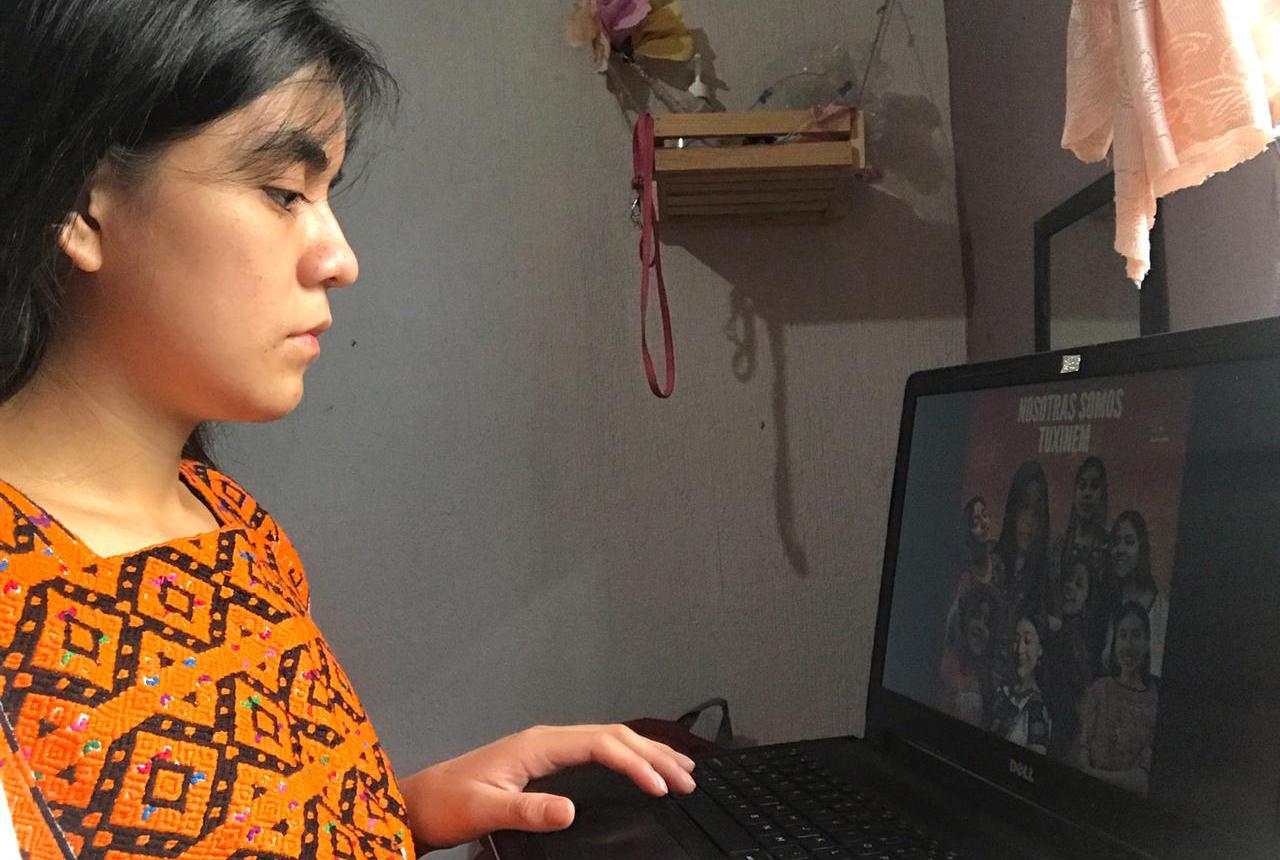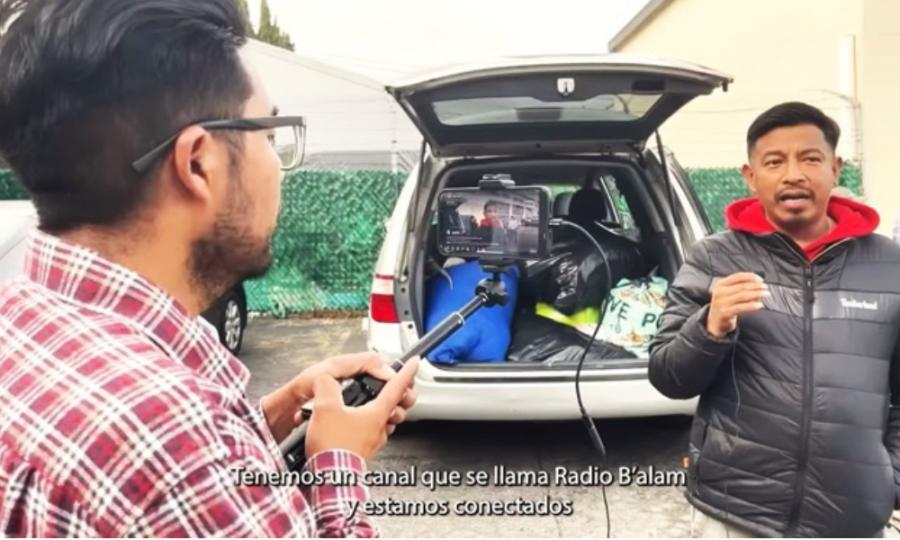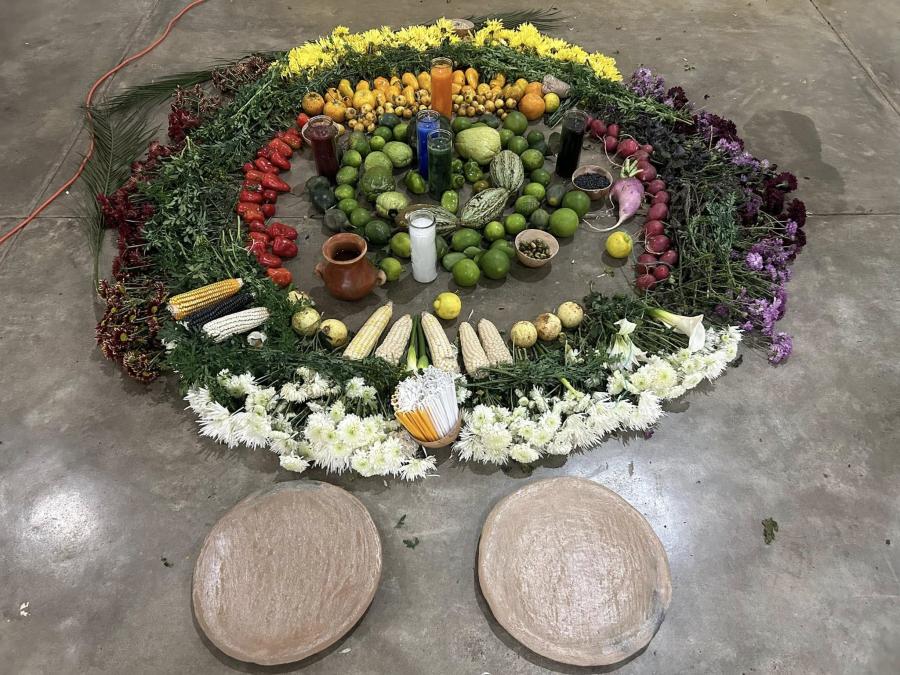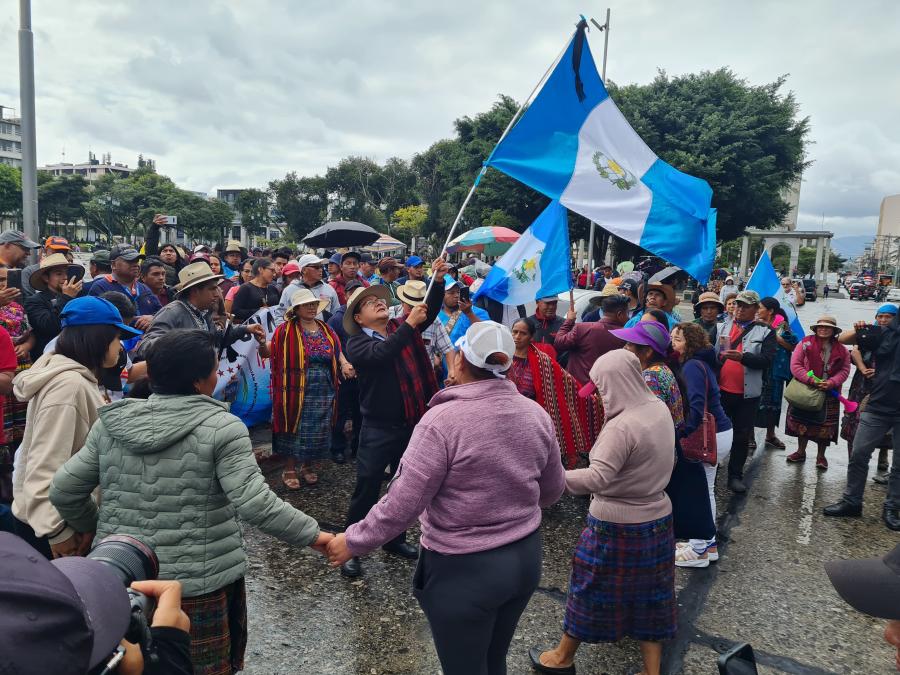
By Mactzil Camey (Maya Kaqchikel)
When the COVID-19 pandemic was emerging worldwide, the government of Guatemala registered the first case on March 13, 2020. I remember having been at university with my classmates from the student association, and we were confused. The chaos in the open-air markets and on public transportation was unbelievable. In early May, the university dean said we would be returning to in-person classes, so we all thought that would be the case. After a year in this pandemic, we continue in the same situation or even worse.
The closure affected everyone in unbelievable ways: young people were inhibited from pursuing their academic paths and were left with uncertain future in-person classes. We did not know whether we would be continuing with our routines or whether we would be delayed even longer. Meanwhile, we were confined by restricted schedules and fear of the pandemic.
COVID-19 brought disadvantages to every family. People were affected by the loss of employment as some small businesses were obligated to close. The educational system turned into a long-distance and virtual model that is inaccessible to everybody unless students have reliable internet and cell service. Yet, for some, there was an advantage to working or taking classes from home. Indeed, it turned out to be somewhat beneficial.
At Tuxinem, a collective formed by young Maya Women (initially created by a group of friends), we decided to make a video on Tik Tok about transitioning from wearing non-traditional Mayan clothing to traditional clothing. With this change in attire, we showed the diversity in our Mayan clothing in Guatemala. We did it merely to amuse ourselves to get through the quarantine. The day we put it up on social media, we received lots of comments, and our video went viral. We received requests from people who wanted to create a report on the Tik Tok video. We were very moved by what our post had achieved. This TikTok video was the basis for creating an Indigenous women’s collective as the expectation was for youth to feel empowered in reclaiming our identity and our Mayan culture on social media. When we formed the collective, we started with eighteen members, all from different linguistic groups.
Mayan women’s organization and participation in different environments are vital. At Tuxinem, our goal is “sharing thoughts, living situations, and ideas to have an impact on our spaces and our ways of living within the Mayan community. Our goal is to create visibility for Indigenous Peoples and stronger connections.” Indigenous Peoples are our central core; we are Mayan people and young Mayan women who can rescue and share Mayan Peoples' values out of our ways of living. We aim to make evident the problems that confront us as a people, such as racism, colonialism, and patriarchy.
Social media has been a means for facilitating communication among many people. It allows for the creation of content on many topics within the Mayan community. This kind of communication has motivated us to organize ourselves. Today, the Tuxinem Collective is a space of resistance against systemic racism, misogyny, and patriarchy; and a way to change ideas about Indigenous Peoples. As Aura Cumes says, “This stance of presenting Indigenous women more thoughtfully seems politically necessary to me. It helps untangle, debunk other ways we have been seen: as a 'secondary culture' or as 'museum pieces,’ untouched by the reality of their surroundings. Humanizing Indigenous women helps us understand that we are not all identical. We are not a homogeneous group and should not be obligated to present one narrow point of view.”
We must position ourselves in spaces from which we can communicate and generate new points of view for the next generations, betting on the recovery of Maya women’s identity. Therefore, young Mayan women’s organizations challenge this system, making us invisible and eclipse our actions. Our voices are essential to expose our and our grandmothers’ struggles.
--Mactzil Camey (Kaqchikel) is 20 years old and lives in San Juan Comalapa, Chimaltenango, Guatemala. She is secretary of the Gender Affairs Commission of the University of San Carlos de Guatemala and an active member of the Tuxinem Collective. Camey is currently studying Political Science. Camey was a participant in the project: “Training Indigenous Women to Defend their Human Rights,” a series of workshops on communication and human rights held between March and June 2021 by Cultural Survival and the Alumni Engagement Innovation Fund. The topics of the trainings included healing, information, and documentation of individual and collective human rights. Different media were used to document and communicate human rights violations, including writing, photography, video, radio, and social media. This article is the result of Camey's final training project.



